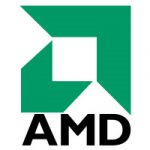PDC 2009: Scuttling huge chunks of Vista architecture for a faster Windows 7

The reason Windows Vista seemed slow, and somehow, strangely seemed even slower over time, is now abundantly clear to Microsoft's architects: The evolution of computer hardware, particularly the CPU, exceeded anyone's expectations at the time of Vista's premiere in early 2007. But the surge in virtualization, coupled with the rise of the multicore era, produced a new reality where suddenly Vista found itself managing systems with more than 64 total cores.
Architects had simply not anticipated that the operating system would be managing this many cores, this soon -- at least, that appears to be the underlying message we're receiving here at PDC 2009 in Los Angeles. As independent scientists were speculating about possible performance drop-offs after 8 cores, server administrators were already seeing it. There were design tradeoffs for Windows Vista -- tradeoffs in efficiencies that could have been obtained through complex methods, for simplicity.
Microsoft launches Office 2010 technical beta a few days early

Participants in the first Technical Preview for Microsoft Office 2010 received invitations this morning to join the Office 2010 technical beta build 4536.1000. Not long afterward, the link to the technical beta went live on MSDN and TechNet.
Ironically, once again, attendees at Microsoft's own PDC 2009 conference were the last to know about it, unless they were checking their own e-mail. The first hint that something was up came up during an unrelated demo during Day 0 of the conference. At the bottom of a screen where taskbar demos were being shown, the new icons for the Office 2010 apps showed up. Now, it appears all Office apps will be represented by their initials, not just Word.
PDC 2009 Day 0: Vista is through

The architects who redeveloped the thread scheduling system for Windows 7 and Windows Server 2008 R2 realized that during the Vista era, they made some design decisions in favor of simplicity, especially for developers. But that simplicity came with a performance hit, especially from processes running in multicore processors -- the more the cores, the bigger the hit.
We all saw that with Vista. In overcoming these deficiencies, it's apparent from listening to the architects themselves, speaking on "Day 0" of PDC 2009 in Los Angeles (the day before the big keynotes), that they had come to loathe Vista's problems just as much as everyday users.
PDC 2009 Preview: The move to Office 2010 and Visual Studio 2010

All next week, Betanews will be reporting from Los Angeles, at the scene of this year's Microsoft Professional Developers' Conference. Based on our experience with prior years' shows, here's the pattern we expect: Day 1 (officially next Tuesday) will center on self-congratulation for Windows 7, much of it deserved. Day 2 will likely bring out the bugle corps for the public introduction of Office 2010 Beta 1 -- not the Technical Preview that's currently being circulated, but a more feature-complete rendition that should have more Web- and cloud-related connectivity.
But our coverage will begin on Monday with an unusual twist to "Day 0," which is usually reserved for in-depth workshops that command extra attendance fees. This year, Microsoft is trying an unusual step by opening up its day-long "Windows 7 Developer Boot Camp," headlined by Technical Fellow and SysInternals engineer Mark Russinovich, not only to all PDC attendees but to the general public. Here, we'll see how much attention Windows 7 can get not just from developers, but from passers-by on the street corner.
After the Intel + AMD armistice: Do we really want a level playing field?

If there were a psychiatrist seated across the room from us, and we were to present to her our feelings about information technology as a force in our lives, her diagnosis would be simple and immediate: We have an obsession. Maybe having nothing to do with technology itself at all, we're obsessed with the notion of a nemesis with an unfair advantage influencing the decisions we make.
In every major arena of information technology over the past five years, the principal topic of discussion has been the need to level the playing field, to restore something called "fair competition," to ensure that the smaller player still has a chance. For the topic of PC operating systems, to this day, there's a frenzied Pavlovian response to the notion that Microsoft Windows stole its ideas from Apple Mac OS -- I moderated public, online discussions about that same topic 25 years ago. For Web applications, we're beta testing the idea of shifting the Darth Vader mask from Microsoft over to Google, the dominant player in nine out of ten of the world's queries; and we're reveling in the irony of AT&T proclaiming Google an evil empire. For smartphones, we're evaluating whether Apple fits the role of dominant player, whether that Halloween costume we used to fit on Bill Gates and that we're testing on Eric Schmidt can be swapped out with Steve Jobs.
'A pivot from war to peace:' The AMD + Intel armistice, in their own words

For much of its history, AMD's image in customers' minds has been established, or at least reinforced, by its very public stance with regard to Intel. The company that AMD has tried to be, it has explained for years, begins with everything that Intel -- at least from its perspective -- is not.
So it must have been a bewildering feeling for AMD executives to approach this morning, perhaps after not very much sleep last night, in an environment that can no longer be framed by the legal and intellectual property conflicts between it and its sole rival. The legal war is gone. Only the market competition remains, the sole differentiator between the last two producers of CPUs for PCs in the world. It was what AMD said it has always wanted.
Analysis: The end of business-by-litigation?

The largest and widest ranging PC technology dispute, perhaps in the industry's history, came to an abrupt end this morning with Intel and AMD agreeing to set aside most of their differences, and all of their legal disputes. Is this a signal to the various litigators in the information technology industry that litigation is no longer the way to go, that it's too expensive a way for a company to continue protecting its market position?
Betanews caught up with our contributing analyst Carmi Levy, by way of his trusty BlackBerry, on a train headed to Toronto this morning.
Carmi Levy: If litigation isn't too expensive from a fiscal perspective, then it certainly is onerous from a corporate attention perspective. Specifically, getting involved in years-long, tit-for-tat pitched legal battles that spill across global borders can often be the catalyst for losing focus on core competencies. While lawsuit-laden companies inevitably claim their legal processes do not impede strategic planning or day-to-day operations, it's clear that they're being overly optimistic. Litigation is a distraction. Never-ending litigation can split a company's focus for just long enough that it can easily lose touch with the needs of its market.
The agreement: Intel and AMD 'wipe the slate clean'

The complete text of this morning's agreement between AMD and Intel was filed with the US Securities and Exchange Commission, and was made public early this afternoon. The agreement explicitly brings to an end three different legal disputes: the 2005 AMD antitrust suit against Intel in Delaware; the 2005 AMD antitrust suit against Intel in Tokyo, Japan; and Intel's objections to AMD's restructuring plan, specifically to spin off GlobalFoundries from a subsidiary to an independent unit.
The agreement acknowledges the gist of AMD's complaints about Intel's prior conduct, but Intel does not in turn acknowledge having acted as AMD suggested. But from there, the agreement effectively acts as if to say, "You know what? Let's forget about all that and start over."
EC still holds Intel accountable even after AMD settlement

Despite an historic resolution to AMD's and Intel's long-standing business practices and intellectual property disputes this morning, the official position of the European Commission -- which issued formal objections to, and fines for, Intel's alleged conduct last May -- is that nothing whatsoever has changed with regard to its ongoing prosecution of its Statement of Objections.
In a statement to Betanews this afternoon, EC spokesperson Jonathan Todd said: "The Commission takes note that Intel and AMD have settled all their litigation and that Intel is paying AMD compensation of $1.25 billion. Intel has an ongoing obligation to comply with the Commission's May 2009 Decision and with EU antitrust law. The Commission continues to vigorously monitor Intel's compliance with its obligations under the May 2009 Decision."
Breakthrough: AMD and Intel settle antitrust dispute, reach new cross-license agreement

Intel has made a statement to Betanews this morning that it and Advanced Micro Devices are settling their long, outstanding legal disputes, including pending antitrust litigation in Delaware court, with Intel agreeing to pay AMD $1.25 billion.
Intel will also agree to abide by a new set of business practices, which may be announced in a matter of minutes. It's over.
Microsoft damage control after marketer claims Win7 inspired by Mac

It's not like this sort of thing has never happened to someone at Microsoft before: a moment of clarity and candidness which may actually be close to, if not exactly, the truth, but which is nevertheless "off message." During a recent reseller's conference, a Microsoft marketing manager named Simon Aldous representing the Worldwide Partner Group gave credit to Apple for creating an operating system that folks in a Microsoft study appreciated. But then, according to PCR Online, a publication for computer and software resellers, Aldous went one step further and said Microsoft took that inspiration and, then with Windows 7, "create a Mac look and feel in terms of graphics."
It was exactly the phraseology that blogs throughout the Internet were looking for, and Aldous' comment became the latest water cooler conversation topic...even though the publication was incorrect in one very important respect: Aldous was not a "Microsoft exec," and therefore was not speaking on behalf of the company. The fact that the publication got Aldous' position wrong created suspicion in at least one person residing on planet Earth that perhaps it had gotten the quote wrong as well. Nonetheless, the headline "Windows 7 was inspired by Apple OS" rocketed throughout the Web.
Bing vs. Google rematch on video search

We've known that Microsoft still has work remaining in its itinerary to build Bing into a more competitive search engine -- we knew at launch time that not every feature would compete on an absolute par against Google. If it did, then MSN and Windows Live would have been far more popular. But when Microsoft steps forward to say, "Now, we really have something competitive in this department," it's difficult to give Bing the same number of "Mulligans" as we did at the beginning.
This morning, Microsoft rolled out some replacements to its old MSN Video search engine -- which had remained online all this time -- to produce Bing Video. Like Google Video and unlike YouTube, Bing Video is not a host; it's a search service for publicly accessible videos. So YouTube videos, although hosted by Google, should appear on Bing as well. The differentiator here, theoretically, should not be inventory, since both services should have access to the same material. Instead, it should be how the material is presented, and whether the search process provides access to not only what the user is looking for, but material that may also be pertinent, relevant, and interesting.
New EU telecoms framework mandates user consent before getting cookies

The heads of state and high ministers of Europe's 27 member nations are now putting the finishing touches on a sweeping new telecommunications regulatory framework, some of whose provisions would go into effect as soon as the first quarter of next year. One of the provisions that appears likely to be approved without much debate would prohibit any Internet service from saving anything whatsoever to individual users' systems without their prior consent. And if they don't give consent, Web sites will just need to find a way to deal with it.
Although Europe's member states would be charged with enforcing this framework, technically there appears to be nothing that would prohibit any of them from taking action against non-conforming Web sites outside of their own borders -- even outside of Europe -- on the grounds that they publish to European readers.
A real beta process at work: Mozilla fires up Firefox 3.6 Beta 2

Download Mozilla Firefox 3.6 Beta 2 for Windows from Fileforum now.
After several weeks of delay for the release of Firefox 3.6 Beta 1, you might say the Mozilla team had some ground to make up. Flying squarely in the face of any commercial company that says it gets bogged down with so much user feedback, the organization accelerated the release of the public Beta 2, in response to 190 major issues with Beta 1 detected and reported by a multitude of users.
European ministers approve watered-down 'neutral net' language

The question before the European Council -- made up of heads of state and key ministers from the EU's 27 member nations -- was whether Internet access should be interpreted as a fundamental human right, and whether obstructing access could be construed as a rights violation. The answer came this morning, and it is apparently no.
A declaration from the European Parliament this morning provided glimpses of a newer round of compromise language for the EU's new regulatory framework for telecommunications. That language will be even more conciliatory than last week, when the European Commission (EC) announced the new regulatory authority. Although the EC made it appear at the time that adoption of its new framework was merely a formality at that point, that wasn't actually the case.
BetaNews, your source for breaking tech news, reviews, and in-depth reporting since 1998.
© 1998-2025 BetaNews, Inc. All Rights Reserved. About Us - Privacy Policy - Cookie Policy - Sitemap.
